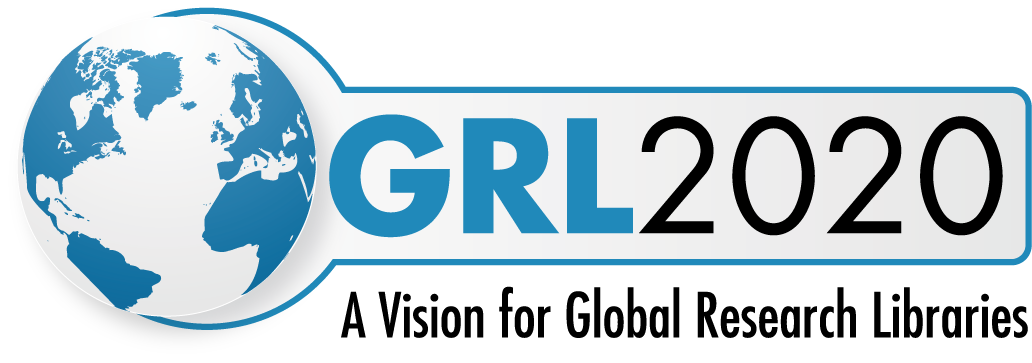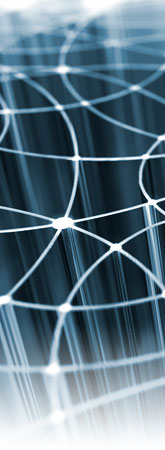Domain Reports
DL.org is aimed at advancing the frontiers of knowledge on DL interoperability, with the ultimate goal of faciliting cross-domain research and the embedding of new research findings into real-world systems. Through its network of experts, DL.org is exploring current challenges and headway across diverse domains as primary beneficiaries of DL interoperability through the more effecitve sharing of research.
Current Special Reports hightlight advances and needs in domains as diverse as eHeritage and High Energy Physics as part of an on-going investigation into data-sharing across a spectrum of communities and how the outputs of DL.org will impact on them.
Community Reports
Biology - Dealing with Raw Unprocessd Data for the Biology Community, Eldon Ulrich, University of Wisconsin-Madison
Earth Sciences - Key Directions for Earth Science & Earth Observation Research Libraries, Luigi Fusco, ESA
eHeritage - Balancing Quality with Community Participation, Jane Hunter, University of Queensland
High Energy Physics - HEP and e-Infrastructure, Federico Ruggieri, INFN
External Reports & Sources
Digital Repositories and Interoperability
The European project OGF-Europe has spearheaded the establishment of the Digital Repositories Research Group (DR-RG) within the Open Grid Forum (OGF) to work towards an architecture study and collection of metadata use cases with the ultimate goal of understanding how current and emerging open standards can bring about interoperability. This eAnnouncement, March 2010, sums up the current state of play with a summary of two workshops, one on Repository Preservation in December 2009 and one on Federating Digital Repositories in March 2010 with a reference also to a new initiative on Global Research Data Infrastructures of the future (GRDI2020), which is also funded by the European Commission to deliver a Roadmap on.
Data Deluge
It is estimated that more scientific data will be generated in the next five years than in the history of mankind. But while more data provides opportunities for new discoveries and fields of inquiry it has created problems with regards to storage, curation, access and analysis. This GridBriefing by the European project GridTalk provides a snapshot of the most pertinent topics resulting from the so-called data deluge.
Cross Domain collaboration
 GRL2020 is a vibrant community that is focusing on top-level challenges facing the global research library of the future with the ultimate goal of creating a knowledge infrastructure that most effectively serves the needs and leverages the competences of domain specialists, librarians and computer scientists.
GRL2020 is a vibrant community that is focusing on top-level challenges facing the global research library of the future with the ultimate goal of creating a knowledge infrastructure that most effectively serves the needs and leverages the competences of domain specialists, librarians and computer scientists.
Find out more about the successful series of GRL2020 workshops that have taken place around the world. Report on the Vision for Global Research Libraries, March 2009.
JISC Report on Keeping Research Data Safe (KRDS2)
 The final report for Keeping Research Data Safe 2 (KRDS2) ipresents the results of a survey of available cost information, validation and further development of the KRDS activity cost model, and a new taxonomy to help assess benefits alongside costs. The KRDS2 study was conducted by Charles Beagrie Ltd. Features in the KRDS2 include:
The final report for Keeping Research Data Safe 2 (KRDS2) ipresents the results of a survey of available cost information, validation and further development of the KRDS activity cost model, and a new taxonomy to help assess benefits alongside costs. The KRDS2 study was conducted by Charles Beagrie Ltd. Features in the KRDS2 include:A survey of cost information for digital preservation, collating and making available 13 survey responses for different cost datasets.
The KRDS activity model has been reviewed and its presentation and usability enhanced.
Cost information for four organisations (the Archaeology Data Service; National Digital Archive of Datasets; UK Data Archive; and University of Oxford) has been analysed in depth and presented in case studies.
A benefits framework has been produced and illustrated with two benefit case studies from the National Crystallography Service at Southampton University and the UK Data Archive at the University of Essex.
One of the key findings on the long-term costs of digital preservation for research data was that the cost of archiving activities (archival storage and preservation planning and actions) is consistently a very small proportion of the overall costs and significantly lower than the costs of acquisition/ingest or access activities for all the case studies in KRDS2. As an example the respective activity staff costs for the Archaeology Data Service are Access (c.31%), Outreach/Acquisition/Ingest (c.55%), Archiving (c.15%).This confirms and supports a preliminary finding in KRDS1.
Keeping Research Data Safe (2 MB)

